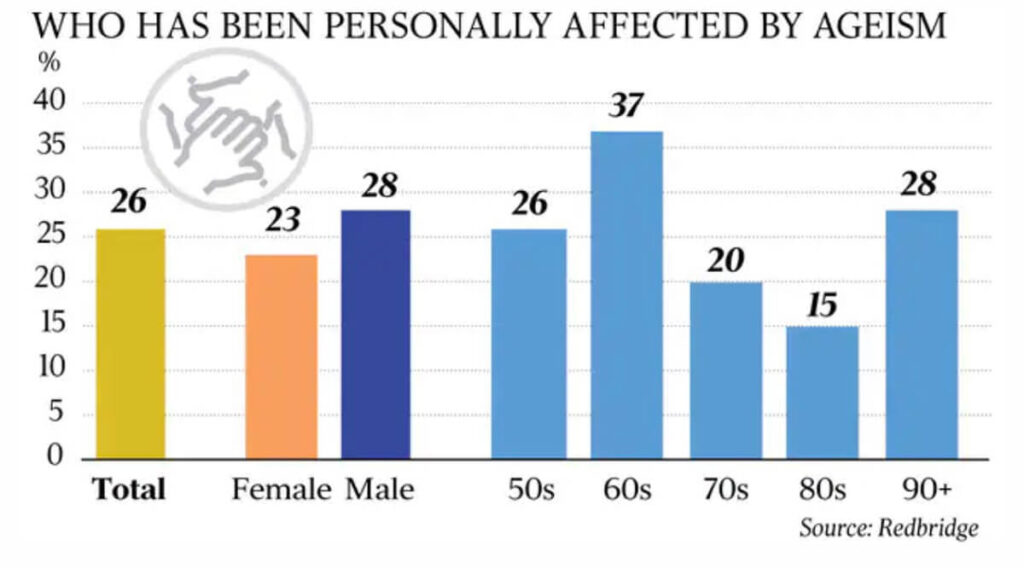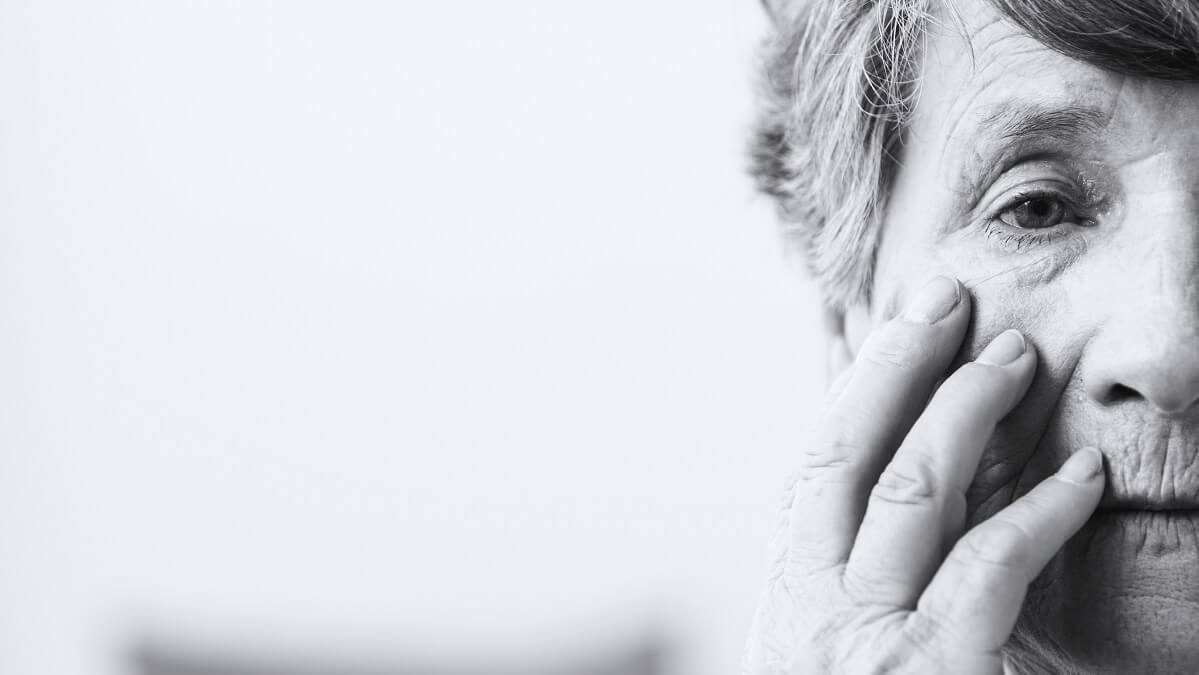You might assume that age discrimination gets worse the older you get. But you’d be wrong, There is one age group that carries the heaviest burden, new research shows.
Like age itself, ageism can creep up on you. But for those in their 50s and 60s, the risk of being overlooked for a job becomes less than subtle.
It is those groups that are most likely to be the victims of ageism, according to the latest research.
A survey of more than 1000 people commissioned by advocacy group EveryAGE Counts found that those in their 60s are most likely to have experienced ageism in the past year, with 37 per cent reporting at least one incident.
Read: Ageism keeping older Australians out of the workforce
For those in their 50s, 26 per cent said they had experienced incidents of ageism. The figure dropped to 20 per cent for those in their 70s and to 15 per cent for those in their 80s.
Interestingly, the survey found that the figure rose again – to 28 per cent – for those aged 90 or older.

Analysis from the survey found that seven out of 10 Australians aged over 50 consider ageism – defined broadly as negative attitudes and beliefs about older people – a serious problem. And EveryAGE Counts director Marlene Krasovitsky said that “should make us all sit up and take notice”.
“This polling shows us that Australians in their 50s and 60s are likely to encounter ageism at work or when applying for jobs,” she said. “Those in their 80s and 90s, conversely, are more likely to report experiencing ageism in the health system, either by being denied treatments or by being ignored in favour of a carer.”
What forms does ageism take?
There are many ways in which you can feel the brunt of ageism, and the EveryAGE Counts survey found that those can also vary within different age groups. The survey focused on eight sub-categories of ageist behaviour:
- being the butt of jokes
- being considered not able to cope with technology
- having others insist they do things for you that you are capable of doing on your own
- job rejections
- being told you’re getting too old for the work you’re doing
- being denied certain aspects of healthcare because of your age
- being ignored or made to feel invisible
- getting ‘talked past’ by a healthcare professional to your companion or caregiver.
Read: Giving out flowers: is this a ‘random act of kindness’ or benevolent ageism?
Looking through that list, I admit to being triggered by some of those. I’m in my late 50s and quite often the target of jokes and jibes about my perceived waning grasp of technology. And it’s my own adult sons targeting me!
Their jibes are friendly, of course, but it would be a lie to say that they don’t occasionally have an effect.
The key is avoiding stereotypes. As we age, there may be an increased risk of slower reaction times. But risk does not equal fact when we look at individuals.
The EveryAGE Counts survey shows that society still needs constant reminding that people in their 50s and 60s are still capable of doing the things they did in their 20s and 30s.
Read: Ageism – just another challenge you face when you hit 60
Ms Krasovitsky told YourLifeChoices that ageism is rife and, alarmingly, highly tolerated.
“Report after report tells us that older people are being discriminated against and that ageism is the number one barrier older people face when they seek work.,” she said.
“If we’re genuine about getting older people into work, we must focus on shifting attitudes and dismantling ageist assumptions and stereotypes.
“It’s the crucial missing piece to creating more inclusive and productive workplaces.
“Even at a time when our economy is facing acute labour market shortages, we still don’t seem able to get past our ageist stereotypes and narrow expectations of older people in work.”
Have you been the victim of ageism? What forms has it taken and how have you reacted? Why not share your experience and thoughts in the comments section below?


Ageism starts at around 45. After that jobs get harder to get. The only reason 70 & 80 yos don’t get in this survey is simply because most have retired, but you certainly still get discriminated against if you conrtinue to work, and are self employed. People don’t think older people know anything